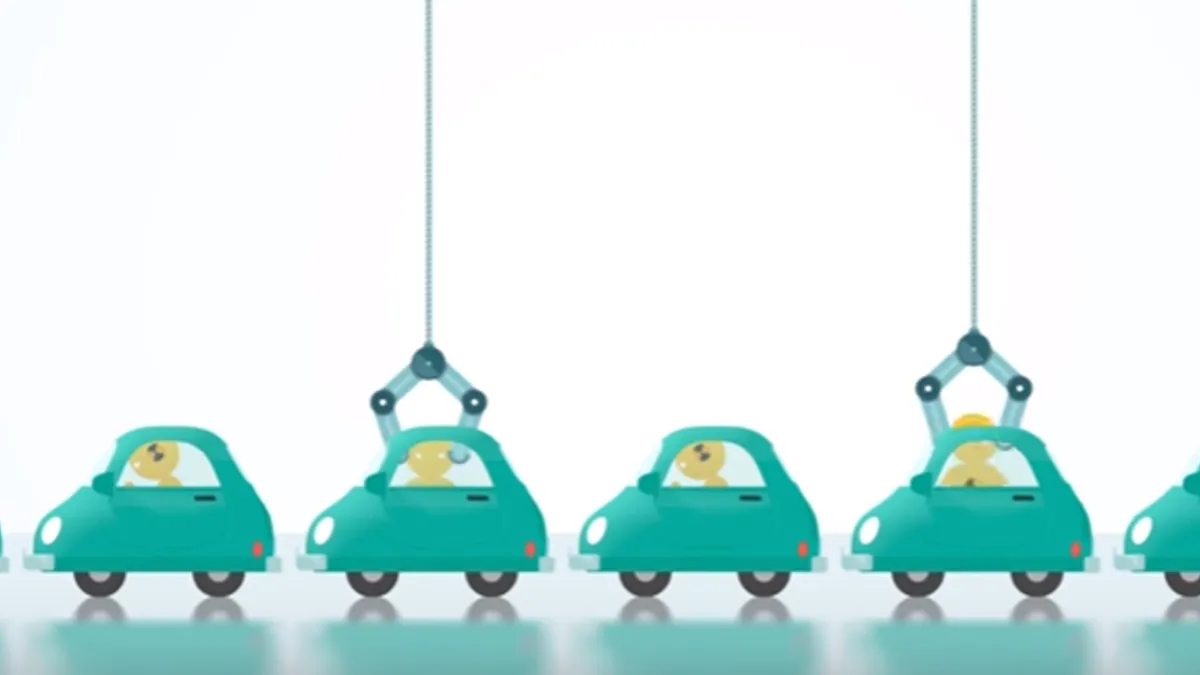Dive Brief:
- Google has been testing a new ride-sharing app named Waze Rider, a spin-off of its navigational app Waze, in San Francisco, according to a report in The Wall Street Journal.
- The key difference between Google’s ride-sharing app and similar services like Uber and Lyft is its ability to match drivers and riders going in the same direction, as opposed to simply replicating a taxi service. Google is currently limiting passengers and drivers to two rides a day, per the Journal.
- Waze Rider is also reportedly less expensive for riders, but also offers lower driver compensation. The Journal, who had a reporter try out the app, says it still has some bugs as well, not displaying where the driver was and not allowing access to Waze's navigational features.
Dive Insight:
Google is repeatedly proving that there's no market too crowded for it to dive into, and the company will need to bring something unique to the ride sharing game if it wants to put a dent in the popularity of Uber.
The Journal reporter who took Waze Rider for a spin said it went "smoothly" overall, and a driver trying out the service suggested it would catch on, though it's too early to tell what the full product will look like.
Google began testing Waze Rider about a month ago, according to a report in Fortune. The competitive move marks a new attitude from the tech giant, which previously was a big supporter of Uber. As recently as March, Uber remained the largest investment of Google Ventures, its VC division, and early in Uber’s existence Google Ventures led a $250 million round of funding for the startup.
As Google looks to diversify its business, ride sharing would seem to tie in nicely with company's mapping capabilities and potentially provide new opportunities for marketers.
Perhaps anticipating a spike in competition from some big names, Uber has been striking marketing deals, notably with Hershey’s in a campaign that began in Mexico and led to a Mother’s Day roll out in the U.S., where Uber shared Hershey’s Kisses with riders and offered free delivery of the candy.
Mobile Marketer reported that a similar Valentine’s Day stunt sold out Uber Kisses in just eight hours. The success of these efforts could position Uber as a novel delivery service for reaching an audience during key times like holidays.
Waze, for its part, introduced a Favorite Brands platform last week that lets users curate which ads they see in a manner emulative of organic native marketing — whether that will be a component of Rider remains to be seen.














